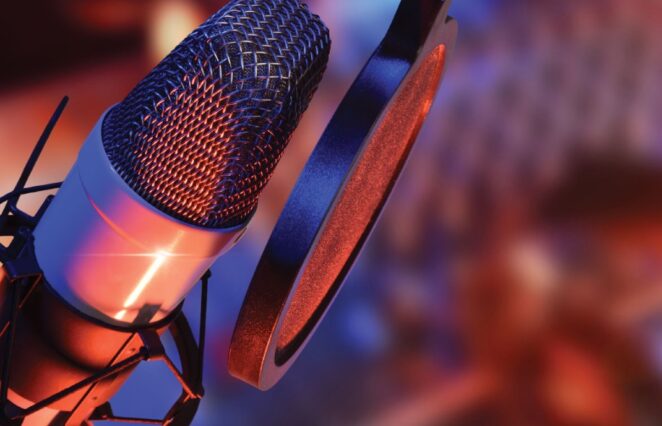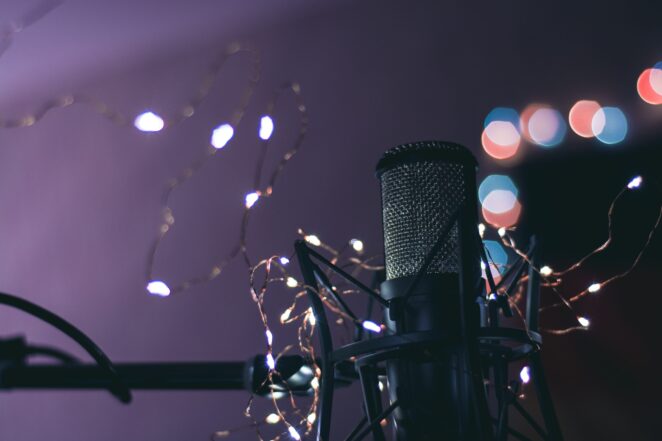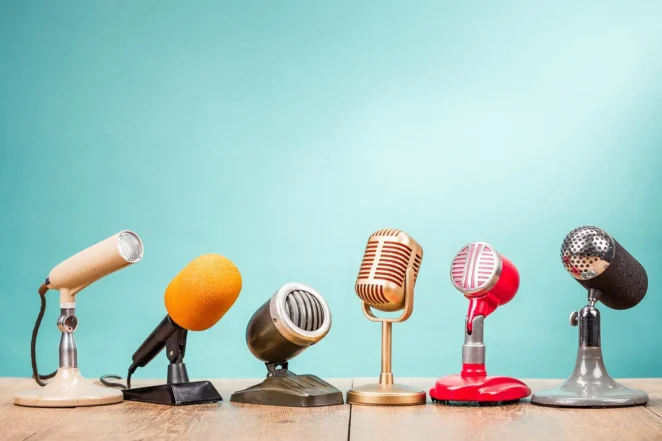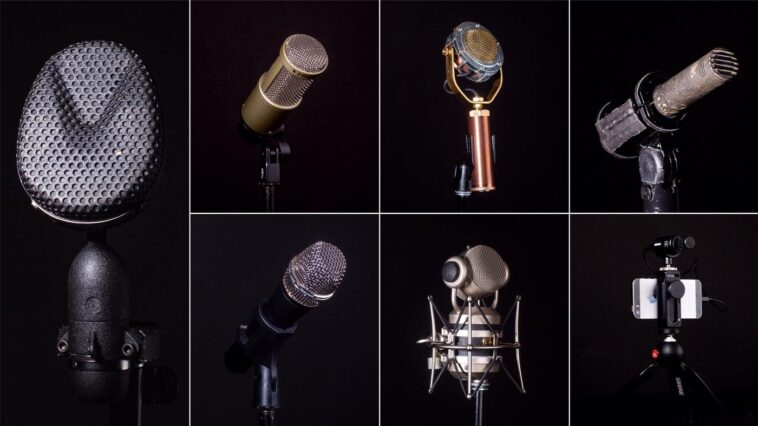When it comes to music recording, one of the most crucial decisions you’ll make is choosing the right microphone. The microphone you select can greatly influence the quality of your recordings, so it’s essential to make an informed choice.
In this article, we’ll guide you through the process of selecting the perfect microphone for your music recording needs.
Understanding Different Microphone Types
Dynamic Microphones
Dynamic microphones are known for their durability and versatility. They can handle high sound pressure levels, making them suitable for various instruments and live performances. However, they may lack the sensitivity required for more detailed recordings.
Condenser Microphones
Condenser microphones are highly sensitive and capture intricate details in sound. They are commonly used for studio vocals and acoustic instruments. However, they are more fragile and require phantom power to operate.
Ribbon Microphones
Ribbon microphones offer a vintage sound with a smooth, warm character. They are excellent for capturing the nuances of vocals and acoustic instruments. However, they are delicate and may not handle high sound pressure levels.
Factors to Consider

When selecting a microphone, it’s vital to take into account various elements, including polar patterns, frequency response, and sensitivity. The polar pattern dictates the microphone’s directional characteristics, influencing how it captures sound.
Meanwhile, the microphone’s frequency response impacts the tonal qualities it can faithfully reproduce.
Sensitivity, on the other hand, reflects the microphone’s ability to detect and capture sound accurately, making it an essential consideration in your decision-making process.
Budget Considerations
The financial aspect plays a pivotal role when you’re in the process of choosing a microphone. The good news is that the market caters to a wide spectrum of budgets.
From economical options ideal for beginners to top-tier models tailored for professionals, you have a plethora of choices.
The key lies in carefully evaluating your specific requirements and aligning them with your budget to strike the perfect balance, ensuring you make a cost-effective yet quality-driven decision.
Studio vs. Live Recording
Your microphone selection greatly hinges on the kind of recording you’re engaged in. Studios offer a controlled environment where the sensitivity of condenser microphones can shine, capturing intricate details.
In contrast, live performances demand durability, making dynamic microphones the preferred choice.
The context of your recording, whether it’s a studio’s controlled precision or the dynamic nature of a live performance, should guide your microphone selection to ensure optimal results.
Microphone Accessories

For an enhanced recording experience, it’s essential to explore microphone accessories such as shock mounts, pop filters, and windscreens. These add-ons play a vital role in improving audio quality by mitigating unwanted noise and enhancing sound clarity.
Shock mounts provide isolation from vibrations and handling noise, resulting in smoother recordings. Pop filters effectively reduce plosive sounds and breath noises, maintaining a clean, professional sound.
Windscreens are instrumental in reducing wind and ambient noise interference, making them indispensable for outdoor recordings.
These accessories not only elevate your recording quality but also contribute to a more polished and refined audio output, ensuring an overall better recording experience.
Research and Reviews
Before making a decision, research and read reviews about different microphone models. Seek insights from fellow musicians and audio engineers to understand the strengths and weaknesses of various options.
Testing and Trying
Whenever the opportunity arises, it’s highly advisable to engage in the practice of testing and experimenting with different microphones prior to making a purchase.
Immersing yourself in the process of listening to how a particular microphone precisely captures the nuances of your specific instrument or vocal performance is an invaluable step.
It enables you to make a well-informed decision, ensuring that the microphone you ultimately choose harmonizes perfectly with your unique sound requirements, leading to a more satisfying and precise recording experience.
Popular Microphone Brands

Reputed microphone manufacturers such as Shure, Neumann, and Audio-Technica have gained recognition for their exceptional offerings. Each of these brands boasts a diverse selection of microphones, each distinguished by its distinctive features and sound qualities.
Shure, for example, is renowned for its robust and versatile microphones suitable for various applications. Neumann, on the other hand, is celebrated for its precision and warmth in capturing audio.
Meanwhile, Audio-Technica offers a broad spectrum of options, known for their exceptional performance. Exploring the product lines of these well-established brands allows you to find a microphone tailored to your specific needs.
Specialty Microphones
If you have specific recording needs, consider specialty microphones. There are microphones designed for instrument recording, vocals, and even overhead drum miking. Explore options that match your requirements.
Maintenance and Care
Ensuring the longevity and consistent performance of your microphone requires diligent maintenance. It’s imperative to store your microphone in a protective case when not in use, shielding it from potential damage and environmental factors.
Regular cleaning is also paramount in preventing the accumulation of dust and dirt, safeguarding the microphone’s functionality.
These practices not only extend the microphone’s lifespan but also uphold its reliability, contributing to optimal recording results.
Conclusion

Choosing the right microphone for music recording is a crucial step in achieving high-quality audio. Consider your specific needs, budget, and the type of recording you’ll be doing.
By understanding the different microphone types and accessories available, you can make an informed decision and enhance your music recording experience.




